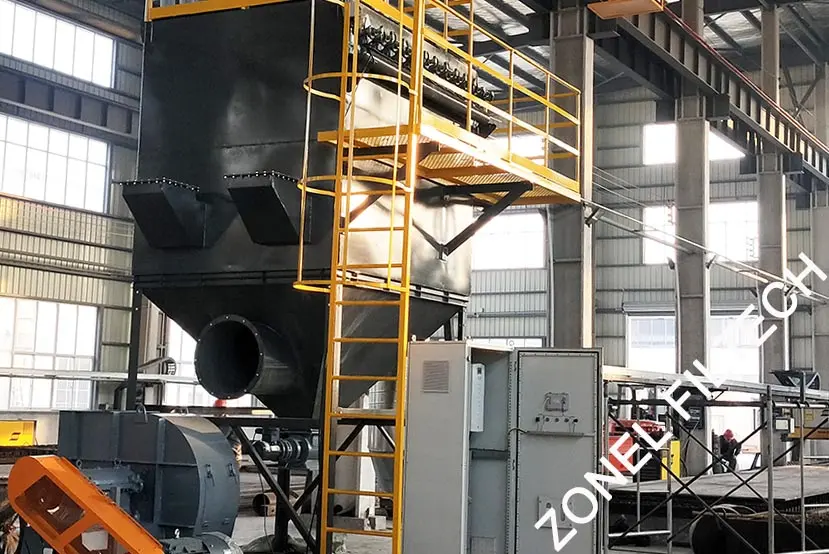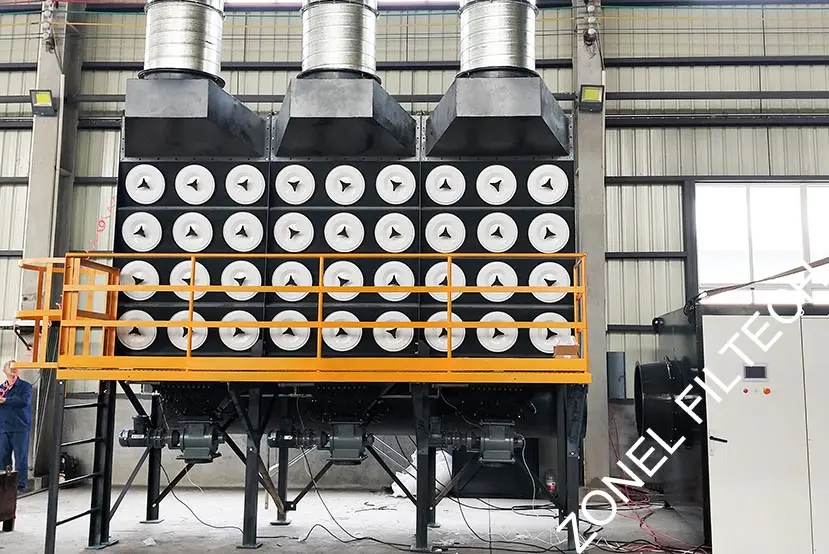In industrial settings, the management of airborne particles is crucial not only for maintaining a clean work environment but also for complying with health and safety regulations.
Two of the most common systems used for dust collection are bag dust collectors and cartridge dust collectors. Each system offers distinct advantages and limitations depending on various operational conditions. This article delves into the specifics of both systems to help businesses determine which dust collector best suits their industrial needs.
Table of Contents
ToggleTwo Dust Collectors Comparison
Feature | Bag Dust Collector | Cartridge Dust Collector |
Efficiency | Good for larger particles | Excellent for fine particles |
Cost | Lower operational costs | Higher initial cost |
Maintenance | More frequent, labor-intensive | Easier, less frequent |
Best for | Coarse, high-volume dust | Fine, low-volume dust |
Space | Requires more space | Compact design |
Air Flow | High airflow capacity | Lower airflow, more efficient |
Installation Cost | Lower | Higher |
Durability | Very durable | Less durable in harsh conditions |
Suitability | High-temperature, abrasive environments | Controlled environments, sensitive applications |
Bag Dust Collectors

Bag dust collectors excel at capturing large, coarse particles, making them ideal for industries like woodworking, mining, and metalworking due to their high efficiency and durability. These systems are economically viable for both installation and maintenance, particularly in settings involving larger particles.
However, they require more physical space due to their size and air clearance needs around the fabric bags. Despite their advantages with larger particles, bag dust collectors are less effective at filtering very fine dust, which may limit their suitability for applications requiring ultra-fine particulate control.
Cartridge Dust Collectors

Cartridge dust collectors are highly effective at capturing fine particles, making them suitable for industries like pharmaceuticals and electronics, thanks to their compact design and efficiency in space-limited facilities. They also offer easier maintenance with quick filter replacements, reducing downtime.
However, they have a higher initial cost and are not suitable for high temperatures or large, abrasive particles, which can quickly clog their finer filters, restricting their use in certain applications.
Factors to Consider When Choosing an Industrial Dust Collector
When selecting a dust collector for industrial use, several factors should be considered to ensure that the system meets the specific needs of your operation:
Type of Dust and Particle Size: The physical characteristics of the dust can significantly influence the choice between bag and cartridge systems. Understanding whether your industry primarily produces larger or finer particles will guide you in selecting the appropriate system.
Space Considerations: Evaluate the space within your facility. Due to its compact design, a cartridge dust collector may be more appropriate for areas with limited space.
Maintenance and Downtime: Assess the maintenance needs and the acceptable amount of downtime for changing filters. Cartridge systems might offer advantages in environments where production cannot be paused frequently.
Budget Constraints: Initial and operational costs are also critical. Bag dust collectors may have a lower upfront cost but can be more expensive to operate in the long run due to higher energy consumption and maintenance needs.
Energy Efficiency and Environmental Impact: Considering the energy usage and the environmental footprint of the dust collection system is increasingly important. Cartridge dust collectors are typically more energy-efficient and could be a better choice for companies looking to minimize their environmental impact.
Conclusion
Choosing between a bag and a cartridge dust collector is a decision that impacts not only the operational efficiency of a facility but also its environmental compliance and workplace safety. Both systems offer distinct benefits and can be the ideal choice in varying contexts.
It is crucial for decision-makers to consider all factors—ranging from the type of dust and space constraints to maintenance needs and regulatory requirements—to select the most suitable dust collector. Ultimately, the right dust collector is one that aligns perfectly with the specific needs of your industry, ensuring a cleaner, safer, and more efficient production environment.
